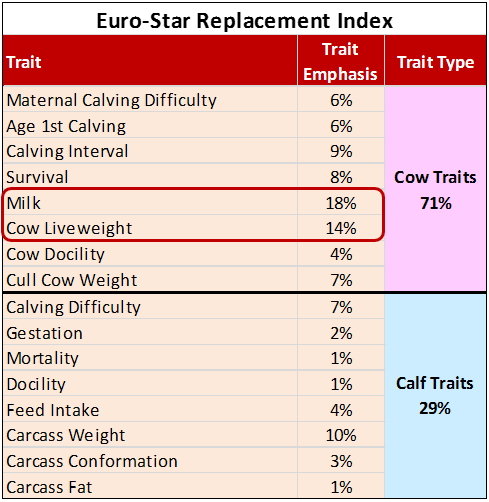The Beef Environmental Efficiency Pilot (BEEP) was launched by Minister Michael Creed TD on Wed 30th Jan 2019. Funding of 20 million euro has been made available by the Department of Agriculture, Food and the Marine (DAFM) for the pilot which aims to capture on-farm liveweights of approx. 500,000 cows and their calves.
For Scales rental, please click on the link www.mybeep.ie
How do I register my weighing scales for BEEP?
How to record your animals weights for BEEP on ICBF.com
BEEP Weight Recording Technicians List

Terms and Conditions of the Pilot
Click here for an overview of the key information on the pilot.
For the full terms and conditions, please click here.
How do I sign up?
Sign up can be completed online (www.agfood.ie) or via postal forms. Postal application forms can be requested by contacting DAFM on 076-1064420. Farmers can sign up to the BEEP from 4th Feb – 22nd Feb 2019.
How will I weigh my animals?
Animals must be weighed on-farm using a weighing platform and indicator. The platform is placed in a cattle race (crush) and animals are weighed as they pass over it (pictures 1 & 2). An owned/borrowed scales can be used or a scales can be rented. Borrowed/owned scales will have to be registered with ICBF before weighing can be done. Details on renting scales will be available over the coming weeks. Weights must then be submitted to the ICBF database via paper forms or online.
What animals are eligible to be weighed in the BEEP?
All suckler calves (beef sire x beef dam) born from 1st Jul 2018 – 30th June 2019 and their dams. Calves must be weighed before they are weaned. Cows and calves must be weighed on the same day.
When do I submit weights?
Weights must be submitted between 8th Mar – 1st Nov 2019. Weights must be submitted to the ICBF database within 7 days of the animals being weighed on farm.
Where can I rent a scales?
Weighing scales will be available throughout the country for farmers to rent for the purposes of carrying out BEEP weighing. Details will be made available to BEEP applicants as soon as these locations are agreed.
What is the payment amount?
For details on payment amounts in the BEEP, please see page 7 of the T’s & C’s here.
Why weigh suckler cows and calves?
Two of the most significant traits in the Euro-Star Replacement Index are milk and cow liveweight (Table 1). It is important to collect as much data as possible on these traits to ensure higher reliability Euro-Star Indexes. The milking ability of suckler cows is measured by the pre-weaning weight gains of their calves. Cow liveweight is measured by recording the weight of suckler cows post calving. Recording liveweights on both suckler cows and their calves will allow farmers to identify their most efficient cows as well as helping ICBF to improve the reliabilities of important traits in the Euro-Star Index. The optimum time to weigh a suckler cow and her calf is when the calf is between 5-8 months old.

Weighing my suckler cows will be very difficult.
Weighing suckler cows is actually quite a straightforward process. Every farmer is obliged to have adequate handling facilities for their animals tor TB testing, treating sick animals, etc. These same facilities can be used for weighing. The animal is not actually being treated for anything during the weighing process, so it is relatively stress free. Picture 3 shows a large suckler cow being weighed in a standard ‘crush’. The cow walks on to the platform and once settled, a weight can be recorded.
What about heavily pregnant cows?
The optimum time to weigh a suckler calf is approx. 6 months of age. At 6 months old, the calf’s dam will be no more than 4-5 months pregnant. Both cow and calf must be weighed on the same day, so cows will not be heavily pregnant when they are being weighed as part of the BEEP.
Environmental Benefit
Identifying the most efficient suckler cows and breeding future generations of replacement females from them will have a significant environmental impact. Breeding a more efficient cow which meets the necessary weight and fertility targets will significantly reduce the amount of greenhouse gases (GHG) generated per kg of beef produced in Ireland. A mid-sized cow approx. 600-700 kg that weans a calf approx. 300-350 kg is the optimum.
If you have any queries on the Beef Environmental Efficiency Pilot, please contact DAFM on 076 1064420 or [email protected].
Download Our New Weighing App
The new ICBF Weight Recording App is now available to download on all Android devices from Google Play Store. It will become available for Apple devices over the next 7 days. This app can be used by anyone. It will be especially useful for those partaking in BEEP. @agriculture_ie pic.twitter.com/9d0R4PS9bi
— ICBF (@HerdPlus) March 25, 2019
